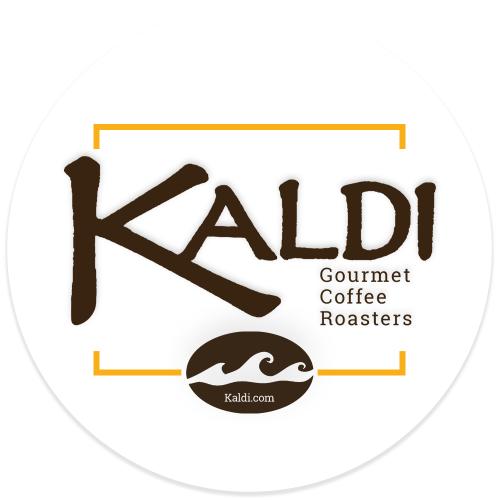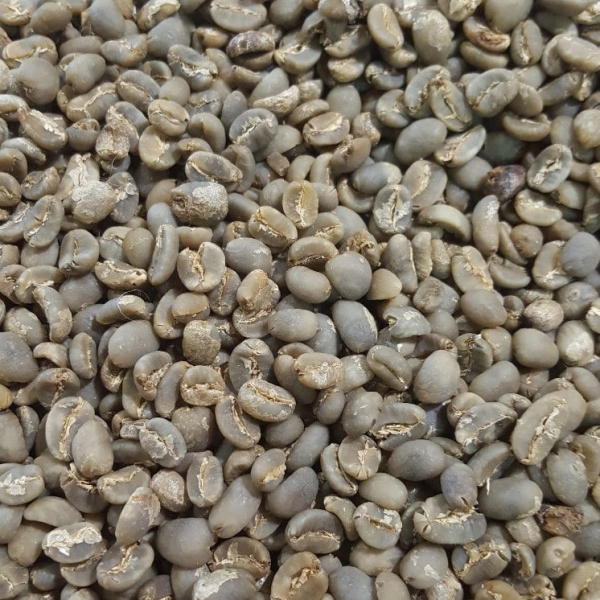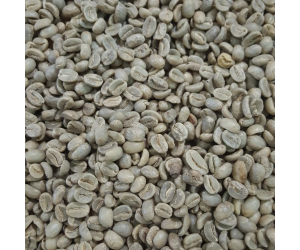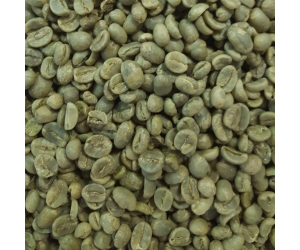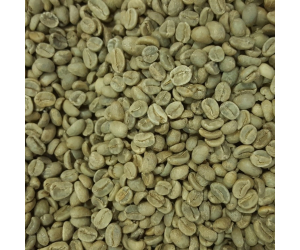Organic Sumatran Green Coffee Beans (Not Roasted)
Organic Sumatran Green Coffee Beans (Not Roasted) Sold in 1 pound (16 oz) increments.
Sumatra is located in Indonesia. Sumatra is divided with half of the country on each side of the equator. This gives Sumatra the distinction of having two climatic zones.
What Types of Coffee are Produced in Sumatra?
There are three types of coffee produced in Sumatra. They are:
- Mandheling which is grown in the northern portion of Sumatra is commonly thought of as being the best coffee produced in Sumatra for flavor and aroma.
- Lington
- Gayo
Interesting Facts about Sumatran Green Coffee Beans
- In Sumatra the majority of planters, growers, harvesters, and transporters of the coffee beans are female.
- The major purchaser of Sumatran coffee is the infamous Starbucks
- Small land holders are responsible for growing ninety percent of the Sumatra coffee
- If a Sumatra coffee farm is considered to be socially and environmentally responsible they can earn a Coffee Practices Certification from Opal Coffee. This certification is hugely sought after by the growers in this country.
- As Sumatran coffee beans age it causes the coffee brewed from them to have a spicy note that is fascinating.
- The lo acidity of the Sumatran coffee makes it less damaging to your tooth enamel
What Process is used to Mill Sumatran Coffee?
Sumatran coffee is primarily processed in a wet hulling method. This is due mainly to the wet and damp climate of Sumatra. The method of processing the beans does have a great influence on the flavors of the coffee they produce. This wet hulling method used in Sumatra lends an earthy tone, mossy flavor reminiscent of mushrooms to the coffee.
Wet hull processing is done by running the coffee beans through a machine that is designed to remove the outer skin from the bean.
The coffee beans are allowed to ferment for about twenty four hours. This fermentation causes the mucilage on the beans to be broken down so that it can be easily removed by washing the beans.
The beans are then dried until they contain about fifty percent moisture.
The beans are then sent to a warehouse where they are furthered processed. The wet hulling process allows the beans to stay wet for a longer period of time than other processing methods do.
Flavors to Expect from Sumatran Coffee Beans
The region in which a coffee plant is grown, the altitude that the plants are grown at, the climate where the plants are grown, and how the beans are harvested and processed all play a part in the flavors and aromas of the final coffee product.
Sumatran coffee beans typically are low in acidity and have earthy flavors due in a large part to the wet hull processing. They also have an aroma that is earthy or reminiscent of woody areas.
The coffee beans generally produce brews that are rich, full-bodied and complex. Often these beans are roasted until they are considered to be a dark roast coffee.
Tips on Using Sumatran Coffee as part of a Unique Blend
Sumatra coffee can be effectively blended with other coffee beans to create unique aromas and flavors according to your preferences. The experts suggest that if you are planning to use these coffee beans as a part of a special blend you choose coffee beans that have different properties to blend with them.
Coffee beans from South America are higher in acidity blend well with the Sumatra beans that are lower in acidity.
Coffee beans produced in Ethiopia are more likely to have fruity flavors that are quite complimentary to the earthy flavors of the Sumatra grown beans.
Is Organic coffee actually healthier for you; or is it all a Hype?
Some of what you hear about organic products is completely true and some of what you hear about organic products is completely false. It can be hard to decide what is the truth concerning organic products and what is fiction.
You may have heard that organic coffee plants are grown without insecticide being used on them. That is not the truth. Organic coffee beans come from coffee plants that were fertilized using natural fertilizers instead of commercially created fertilizers, and organic coffee plants are treated for pests using insecticides that are derived from natural things that the bugs find repulsive instead of using harmful chemicals that can poison the bugs, the area where the plants grew, and the ground waters.
Organic coffee beans, and other organic products are healthier for you because they are grown and fed things that are natural and nothing that is considered to be a commercially produced poison.
